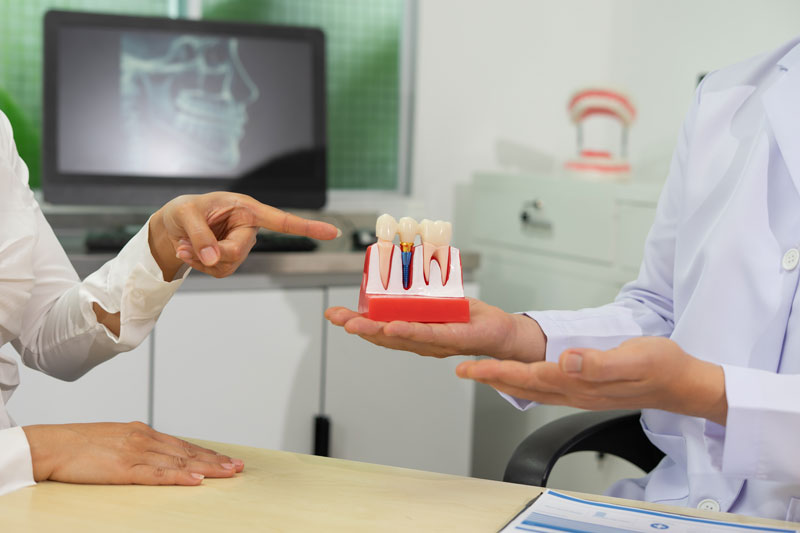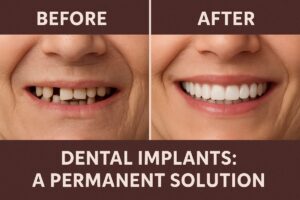Dental implant metal plays a crucial role in modern implant dentistry, providing a strong and stable foundation for artificial teeth. As technology advances, understanding the materials used in dental implants becomes essential for both doctors and patients alike. These metals must withstand the constant pressures of biting and chewing, ensuring the dental implant’s longevity. Furthermore, they must integrate effectively with the jawbone, an essential factor for long-term success. This integration, known as osseointegration, is pivotal in maintaining the implant’s positioning and functionality over time. The choice of dental implant metal, therefore, directly impacts the overall effectiveness of dental restorations.
Understanding what dental implant metal entails involves exploring the materials specifically selected for their unique properties. Often, the decision to use metals is based on their strength, compatibility with biological tissues, and resistance to corrosion. These metals need to be non-toxic and must not react adversely with body tissues. This ensures that the patient experiences comfort and functionality without the worry of metal reactions. As a cornerstone of implant dentistry, the metal used can influence both the procedure’s success and the patient’s satisfaction. Therefore, becoming informed about these materials can be incredibly beneficial for informed decision-making.
Exploring Diverse Implant Material Options
One of the most common metals used in dental implants is titanium, renowned for its strength and biocompatibility. It’s favored due to its ability to fuse with bone over time, leading to successful and stable long-term results. Titanium alloys provide added benefits, offering enhanced durability and a reduced risk of fracture. Alternatives such as zirconia represent a growing interest, particularly for those prioritizing metal-free options. This ceramic material, while distinct in composition, offers similar stability and is valued for its aesthetic appeal. The selection amongst these materials largely depends on individual needs and specific health considerations.
Each material comes with its own set of pros and cons, influencing the final decision patients and their doctors make. Titanium, for instance, is excellent for durability but might not be suitable for patients with specific metal sensitivities. Zirconia, while appealing to those sensitive to metals, may come with its own aesthetic and functional considerations. It’s crucial for patients to consult with their dental providers to weigh these factors accurately. The decision ultimately aligns with patient preferences, clinical scenarios, and long-term health objectives. Additionally, understanding these material properties aids in managing expectations and optimizing implant surgery outcomes.
The Impact of Metal Choice on Implant Longevity
The choice of metal in implants is a major determinant in their lifespan and overall success. Correct metal selection promotes effective integration with the bone, enhancing the implant’s durability and capacity to handle daily wear. For most patients, titanium has served as a gold standard, offering reliable success rates and minimal complications. Its properties ensure that the structural integrity of the implant remains uncompromised over extensive periods. On the other side, advances in ceramics like zirconia continue to offer valuable alternatives with promising results. Each type of material ensures a versatile approach to meeting varied patient needs and expectations.
Longevity isn’t merely about durability; it’s about achieving a natural look and feel that lasts. The aesthetic demands can greatly influence metal choice, impacting the patient’s confidence in their dental restorations. Patients who opt for metal-free options may prioritize zirconia for its natural tooth appearance and ability to complement existing teeth. Meanwhile, the robust nature of titanium ensures functionality which is equally pivotal. Ultimately, selecting the correct implant metal emphasizes balancing both practical needs and desired cosmetic outcomes. Such thoughtful consideration plays a significant role in patient satisfaction and long-term oral health success.
Advances and Innovations in Implant Metal Technology
Recent innovations in implant metal technology have continually enhanced patient outcomes, paving the way for robust and effective dental implant solutions. With ongoing research, materials are now being developed with properties that further increase their strength and integration capabilities. For instance, coating advancements on titanium have improved its bonding with bone, reducing healing times and providing a more secure fit. On the frontier of these advancements are new metal composites that may offer reduced risks of infection along with anti-corrosive characteristics. Research continues to drive the possibility of more patient-specific implant materials, optimizing treatment plans.
Understanding how metal interacts with body tissues is crucial for predicting and managing potential sensitivities. Biocompatibility remains a central theme in ensuring that the implants are well-tolerated without causing adverse reactions. Manufacturers are keen on developing metals that provide the least interference with the body’s natural chemical and physical processes. This innovation is crucial for patients who may have past metal sensitivities or are prone to allergies. With these advancements, patients can expect enhanced comfort and reduced likelihood of postoperative complications. Knowing that these metals undergo rigorous testing and adaptation offers reassurance and peace of mind.
At Sedation & Implant Dentistry, we understand the importance of choosing quality implant materials for long-term success. By prioritizing innovative dental solutions, we leverage state-of-the-art technology to offer top-notch care. Whether you’re considering traditional titanium implants or newer zirconia alternatives, our practice is equipped to cater to your unique needs and preferences.
Are you ready to restore your smile at our skilled and trusted dental practice? Don’t wait to get the smile of your dreams with us. Get in contact with our doctor, Dr. David Painter and our exceptional team at our practice to schedule an appointment today!






